The best animals only eat meat out of necessity… it’s really inefficient calories
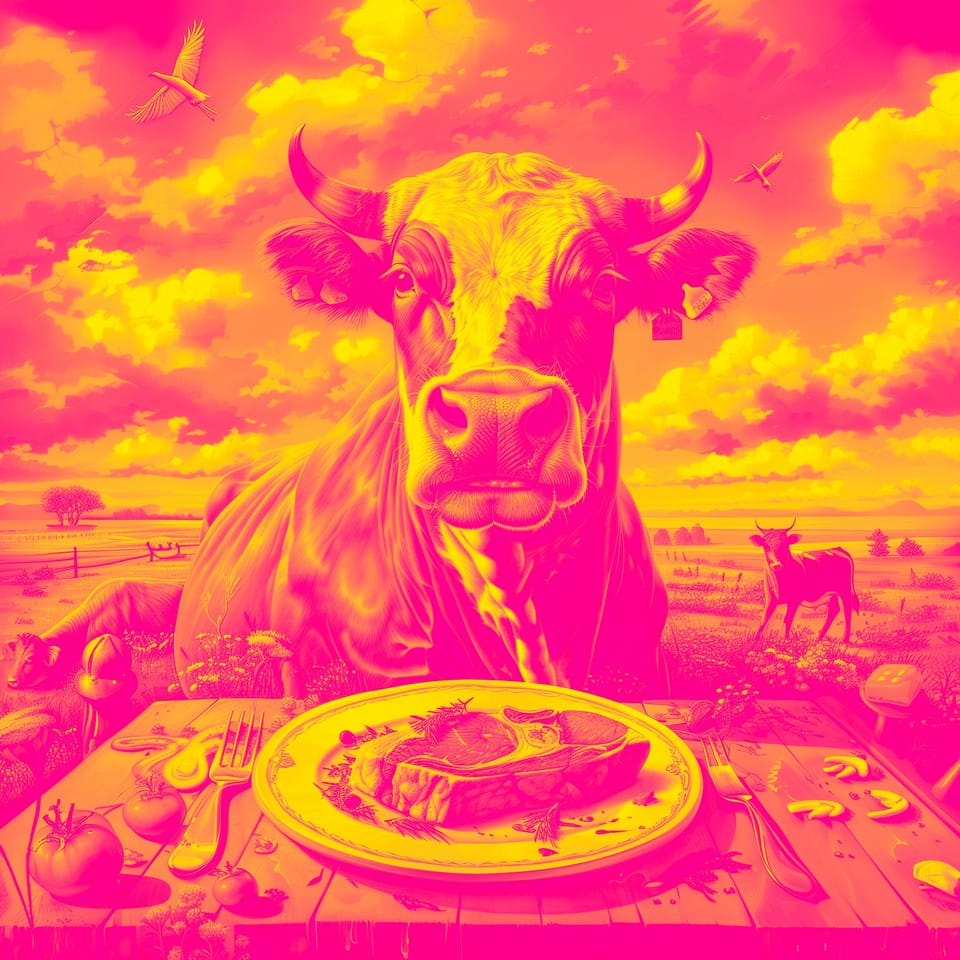
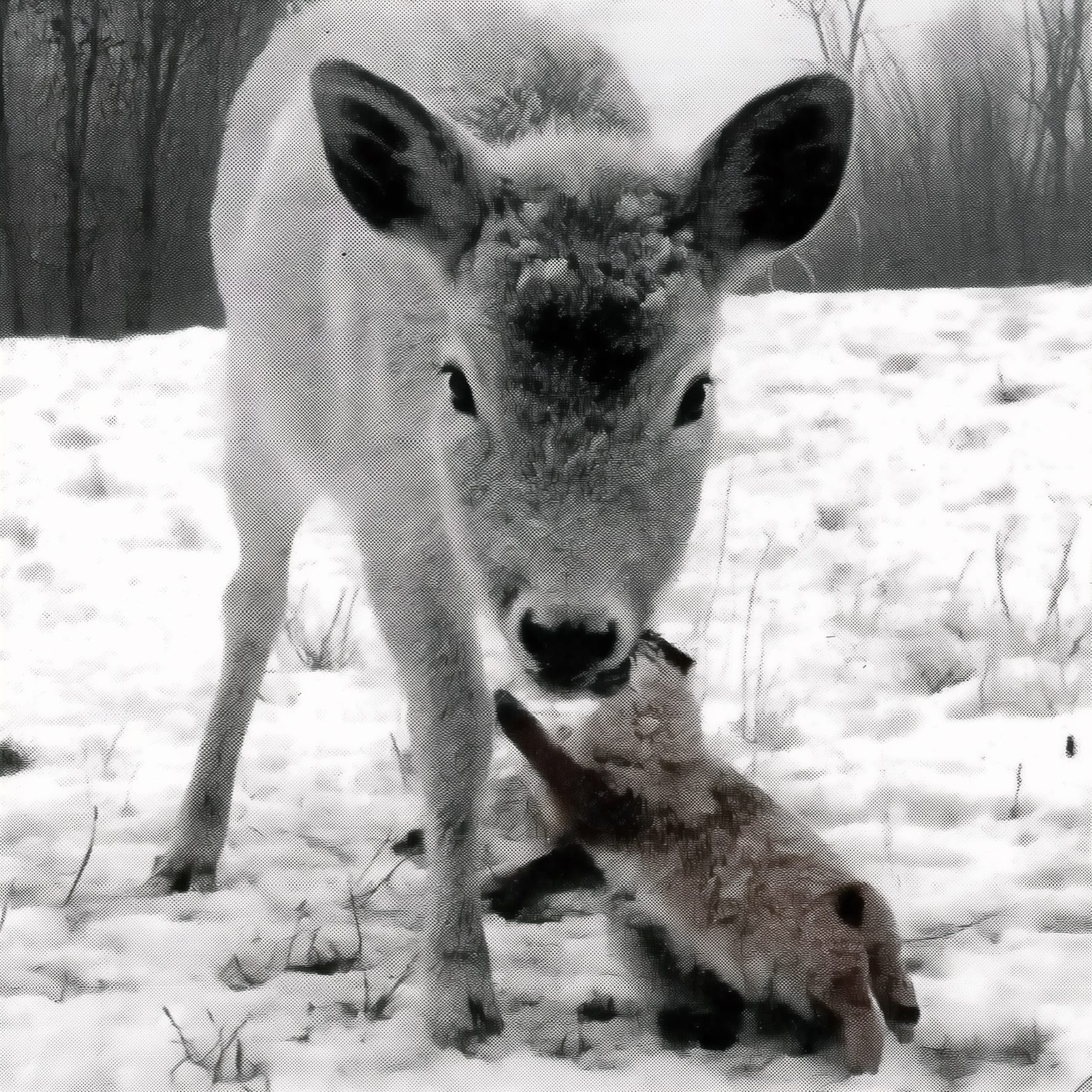
So Do Vegetarian Animals Eat Meat?
Absolutely not not.
Clever double negative is clever. Munch munch.
When we think of vegetarian animals, we often picture them munching on greens, fruits, and grains. However, the dietary habits of these animals can be more complex and opportunistic than we might assume. While their primary diet consists of plant matter, many so-called vegetarian animals will occasionally consume meat if the opportunity arises. This might come as a surprise, but nature often blurs the lines we draw between dietary categories.
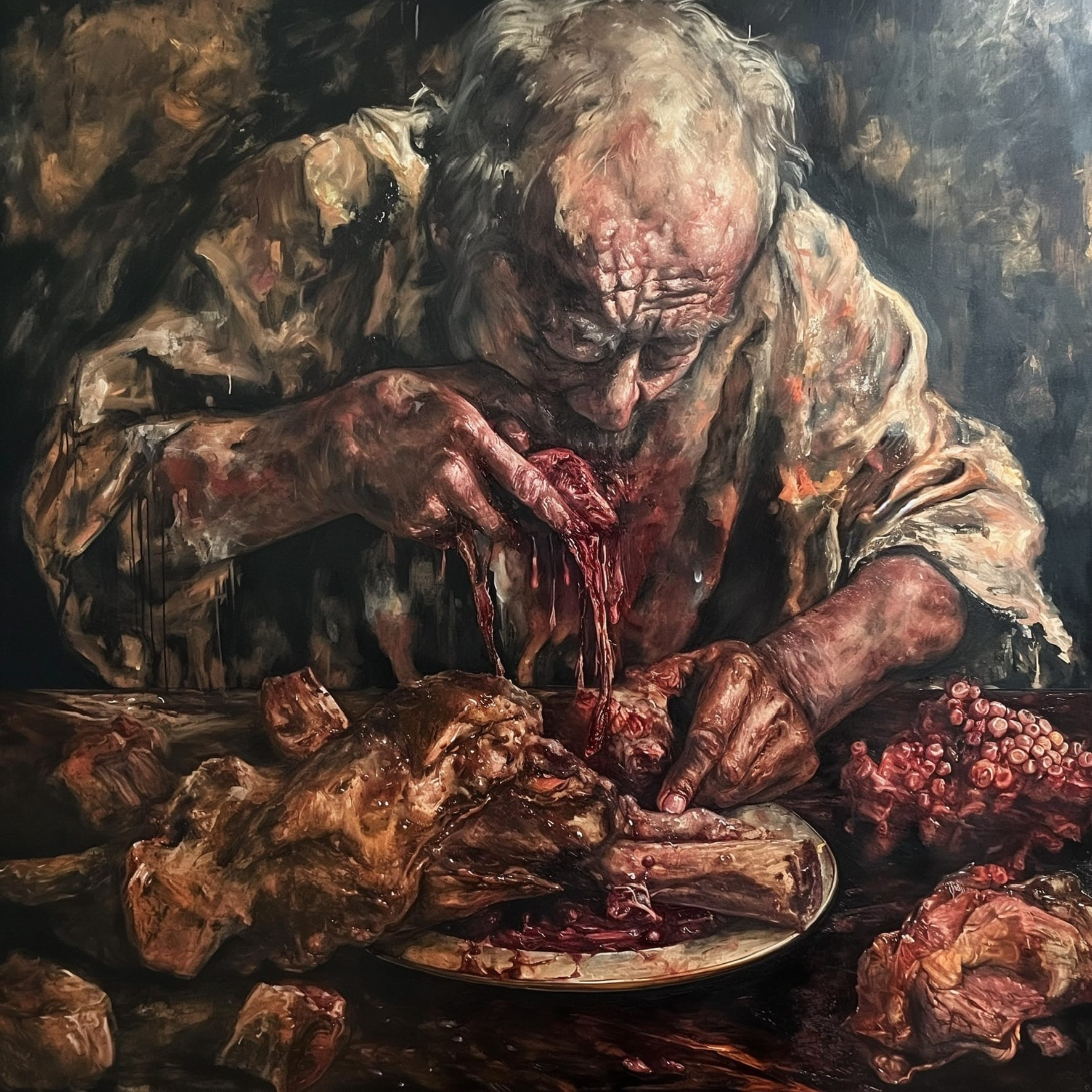
Opportunistic Eating in Herbivores
Animals eat whatever they come across and find edible. This opportunistic feeding behavior means that animals we normally consider vegetarian will eat meat on occasion if they come across it and feel peckish. It’s not their favorite food, but as any human who has visited a fast food place can attest, foul food is superior to no food at all. For example, deer, typically known for their plant-based diet, have been observed eating birds' eggs and even small animals when plant food is scarce.
Munch munch.
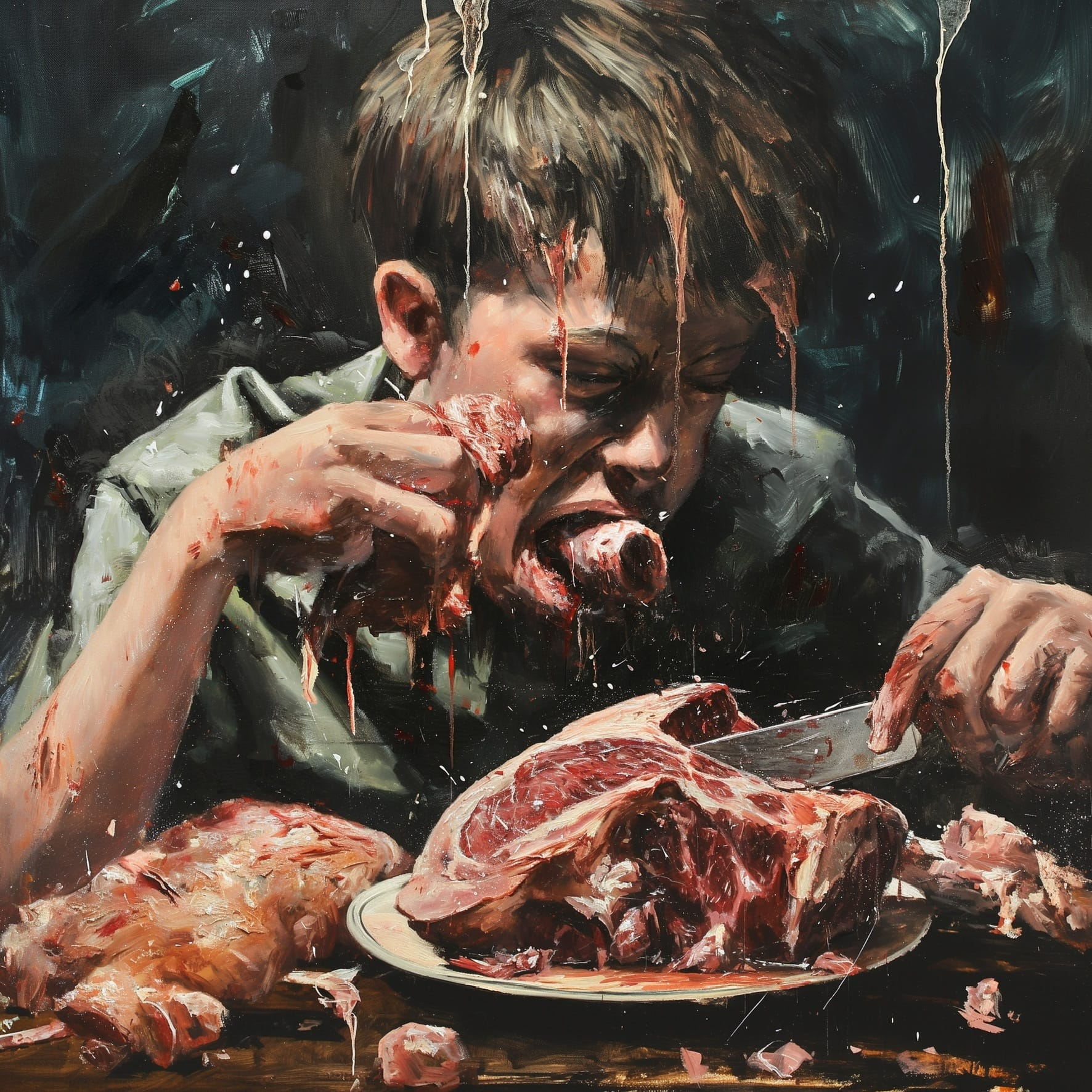
What “vegetarian” animals won’t do is chase down other animals to kill and eat them. They aren’t well suited for that and would expend too many calories for the strategy to be effective. Predation requires physical adaptations and energy investment that these animals do not possess. Instead, they might come across carrion or other animal matter by chance and take advantage of the easy meal. If they can get something without the chase, are hungry, and there isn’t any food they consider more desirable available, then they’ll eat whatever.

Nutritional Benefits of Meat for Herbivores
Occasionally consuming meat can provide herbivorous animals with nutritional benefits. Meat is rich in protein, fats, and certain minerals that are less abundant in plant-based diets. For instance, some ungulates (hoofed mammals) have been observed gnawing on bones to obtain calcium and other nutrients necessary for bone health. This behavior, known as osteophagy, demonstrates how these animals can supplement their diet with animal matter to meet their nutritional needs.
Munch munch munch.

Famous "Vegetarian" Animals
Deer: Deer are known for their diet of leaves, twigs, and fruits, but they have also been observed eating fish and small mammals. This behavior often occurs in harsh conditions where plant food is limited.
Sheep: Typically herbivorous, sheep feed on grass, clover, and other pasture plants. However, in environments where vegetation is sparse, sheep have been known to eat insects and small animals.
Elephants: Elephants consume a variety of vegetation, including leaves, bark, and fruits. On rare occasions, they have been observed scavenging carcasses during extreme droughts when plant food is extremely scarce.
Horses: Known for their diet of hay, grass, and grains, horses sometimes eat meat when other food options are not available. There have been reports of horses consuming small mammals and birds.
Cows: While cows are primarily grazers, feeding on grass and hay, there have been documented cases of cows consuming small birds and animal carcasses. These instances are rare and usually occur when other food sources are scarce.
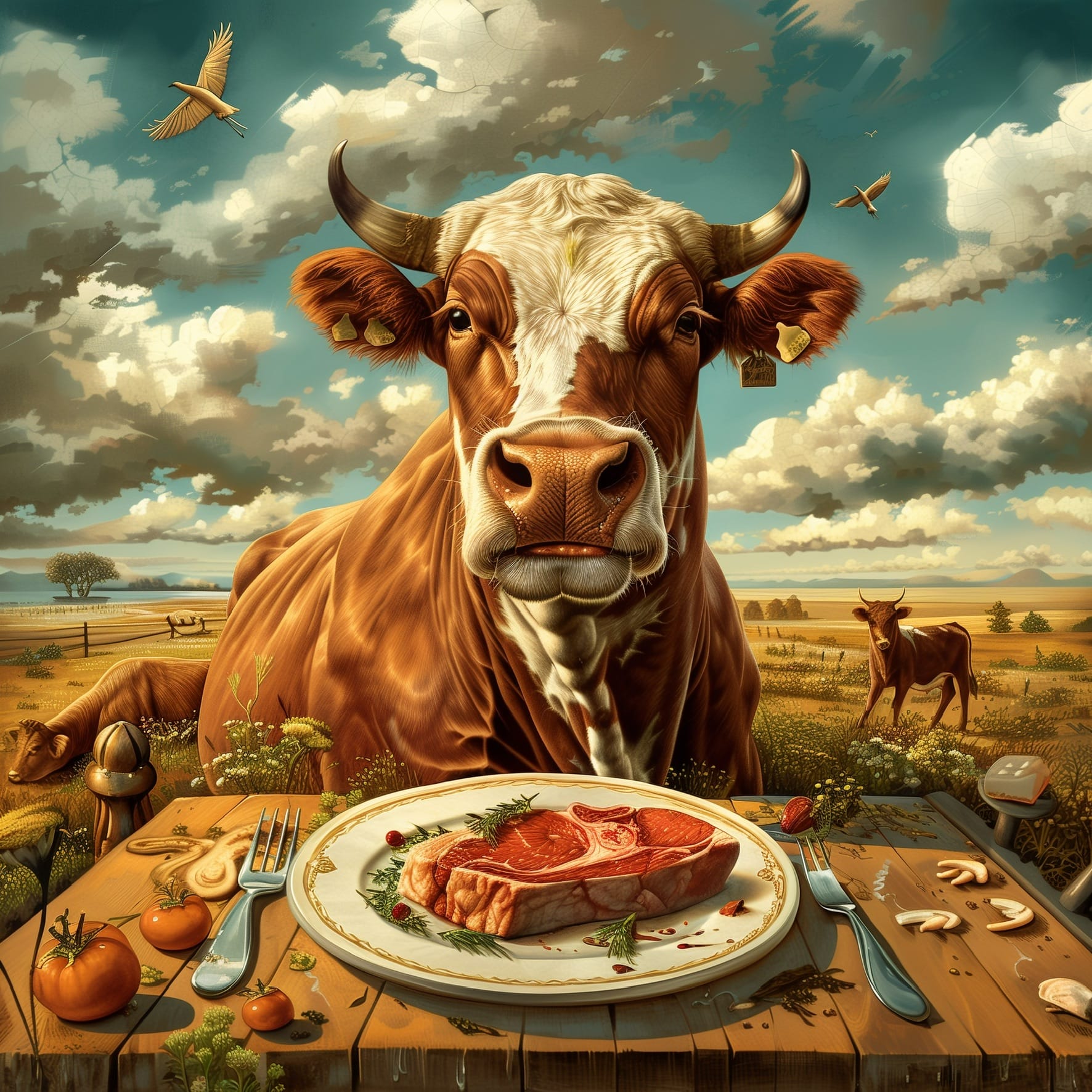
Rabbits: Generally associated with a diet of vegetables and leafy greens, rabbits have been seen eating small animals, such as insects or even carrion, under extreme conditions.
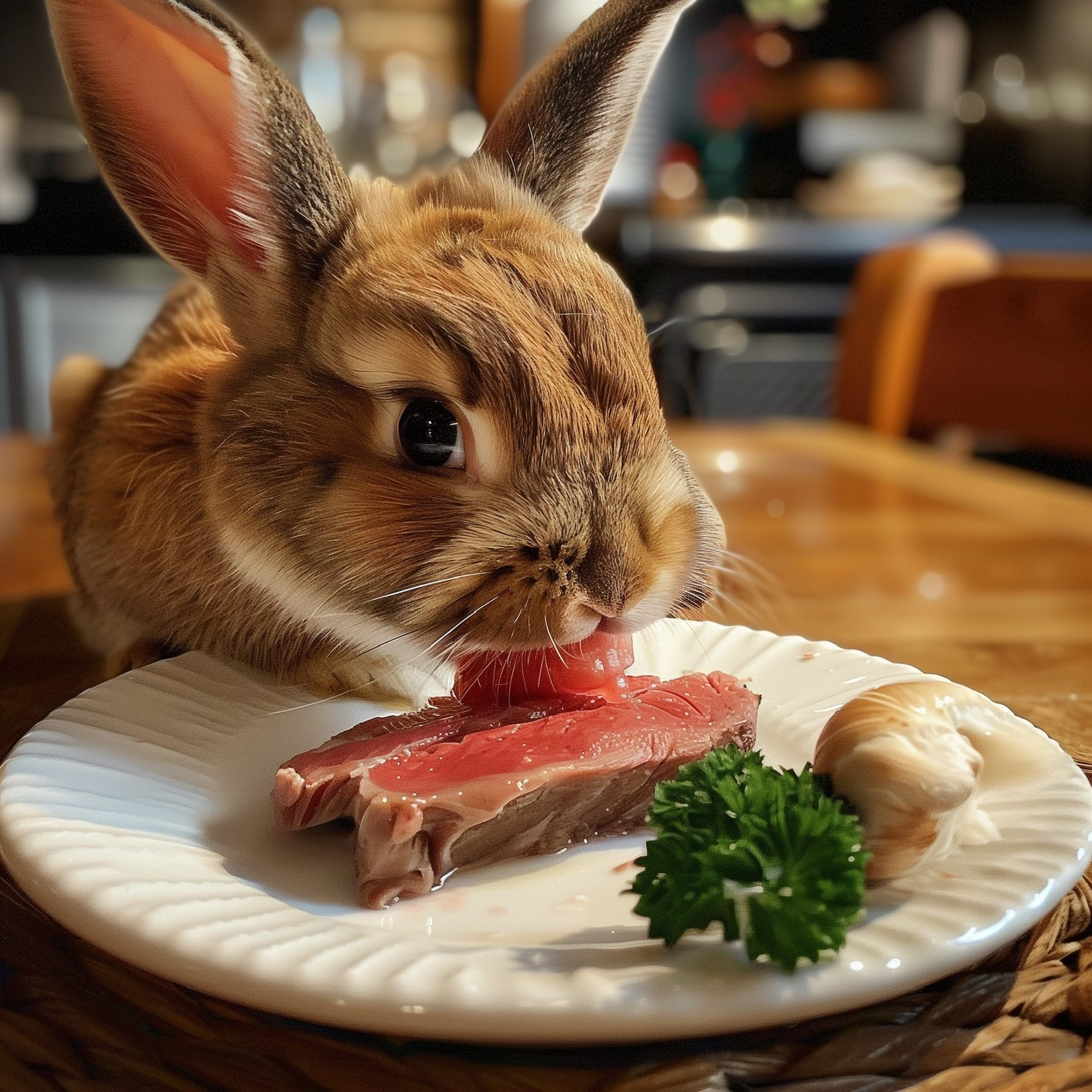
Munch munch munch.
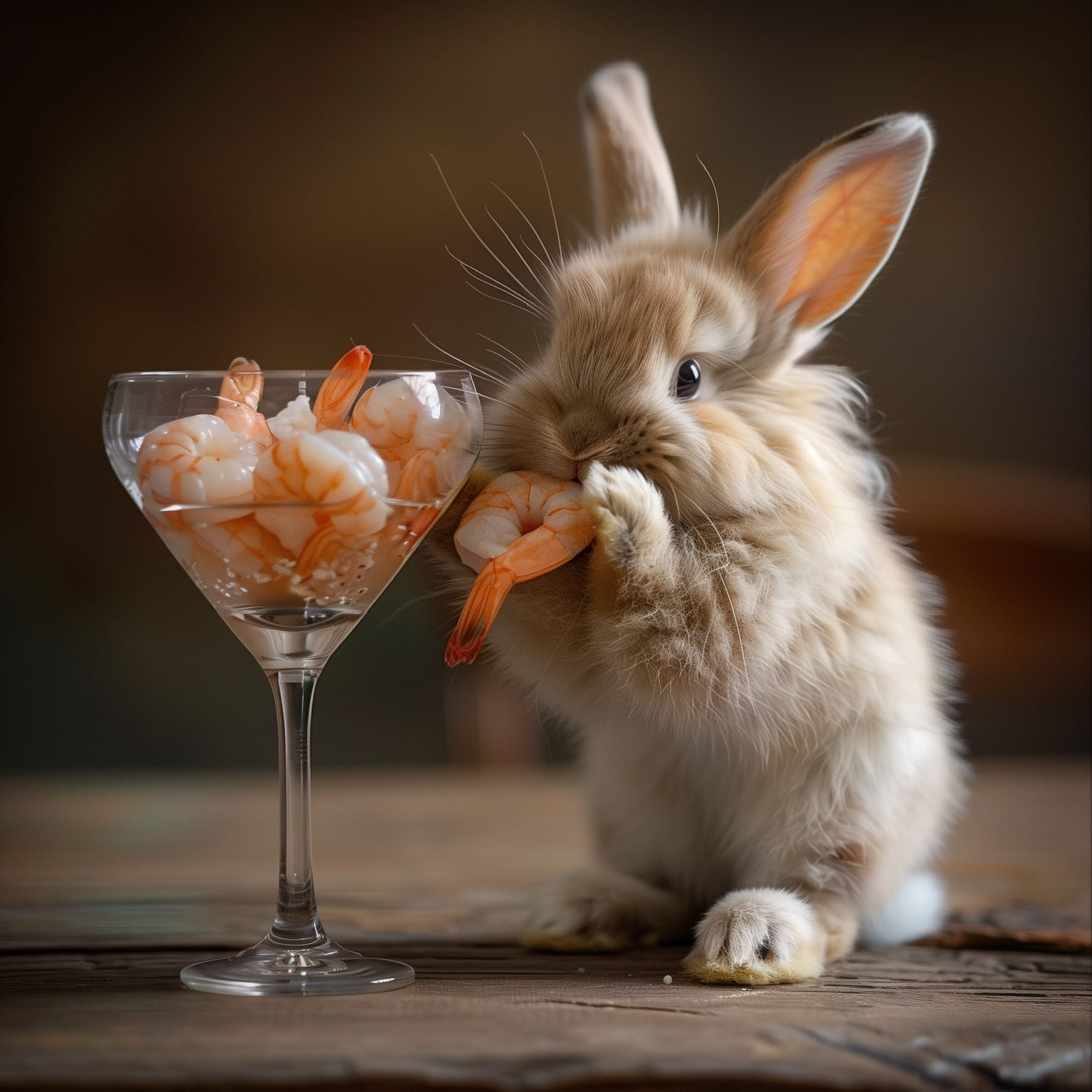
Clever Consumption and Survival
So, what drives these seemingly vegetarian animals to occasionally indulge in meat? It's all about survival and seizing opportunities. In the wild, food scarcity and nutritional needs push animals to adapt their diets. While their digestive systems are optimized for processing plant matter, they can still derive benefits from animal proteins and fats when necessary. This dietary flexibility ensures they can survive in diverse and sometimes challenging environments.
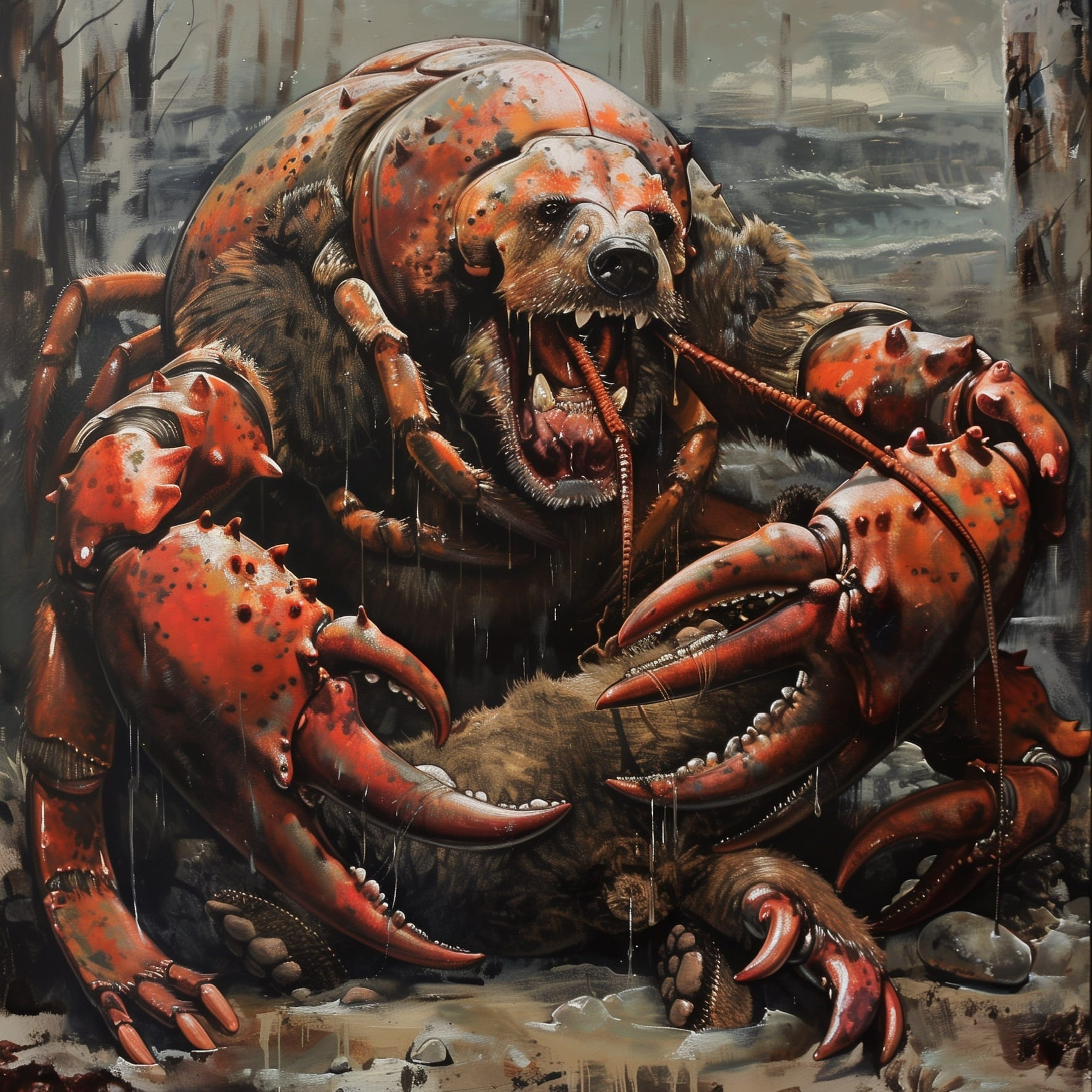
Conclusion
In conclusion, while vegetarian animals primarily consume plant matter, their diet can include meat under certain circumstances. This opportunistic behavior is driven by the need to survive and obtain essential nutrients that might be lacking in their regular diet. Understanding the flexible dietary habits of these animals helps us appreciate the complexity of their survival strategies in the wild.
So, the next time you see a "vegetarian" animal munching on something unexpected, remember that nature often defies our simplistic categorizations.
Munch munch munch.
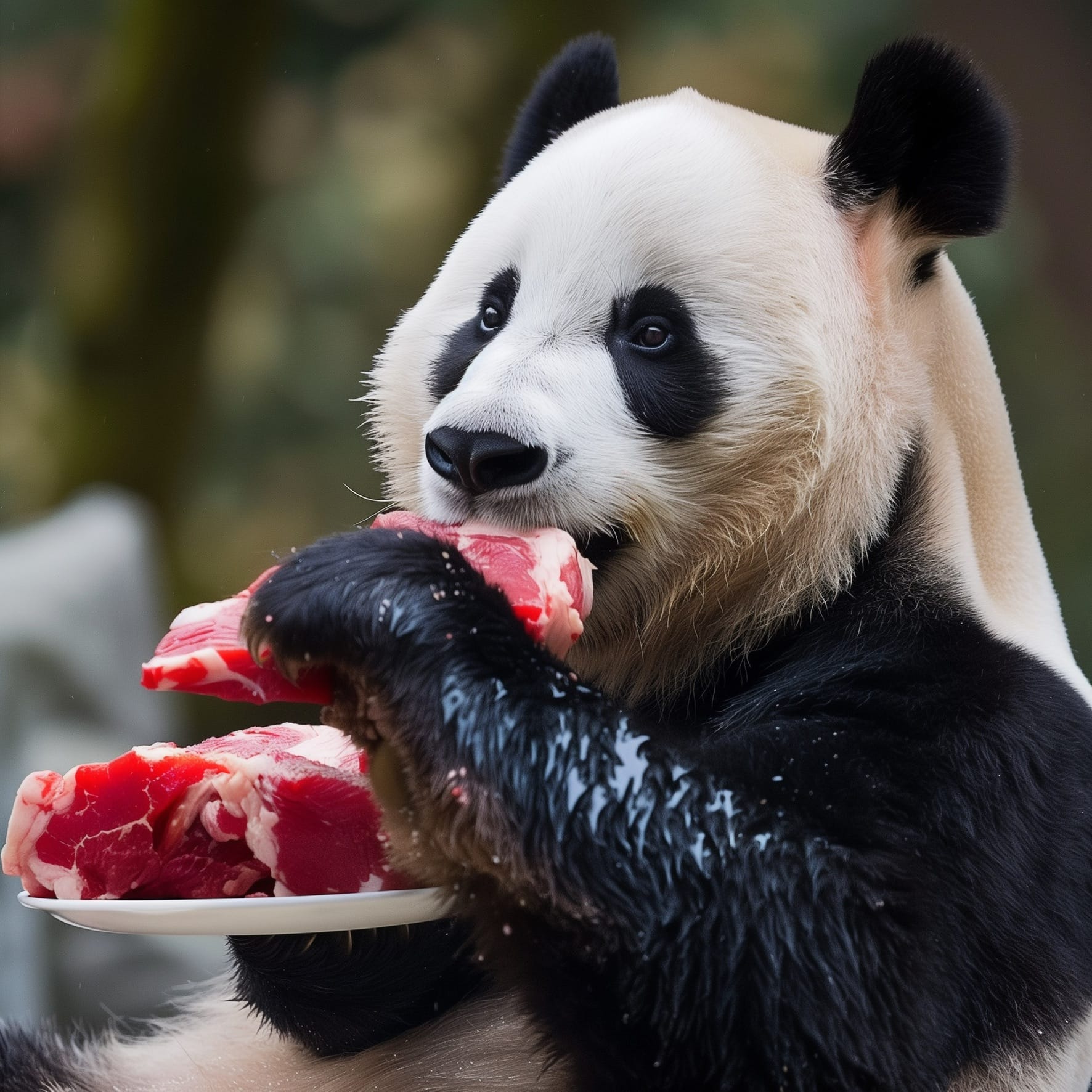
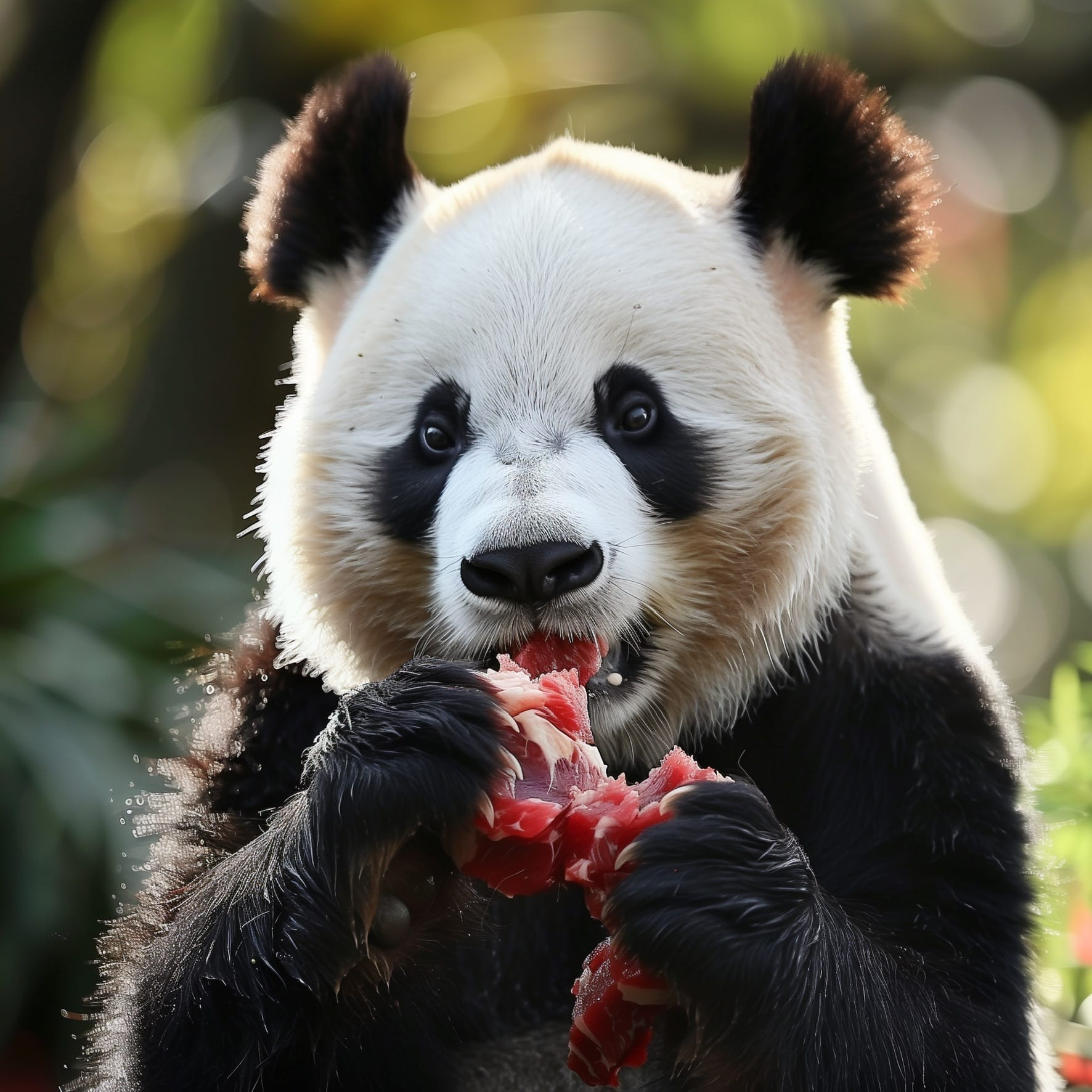
References:






Member discussion